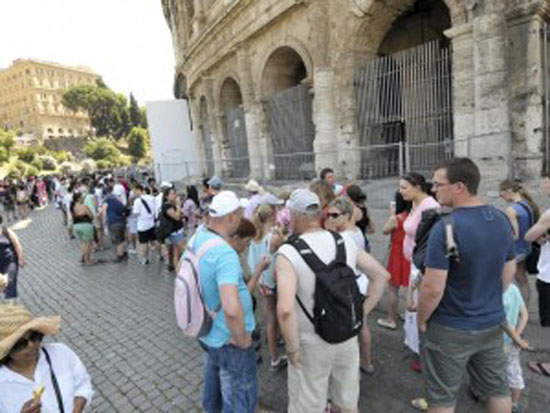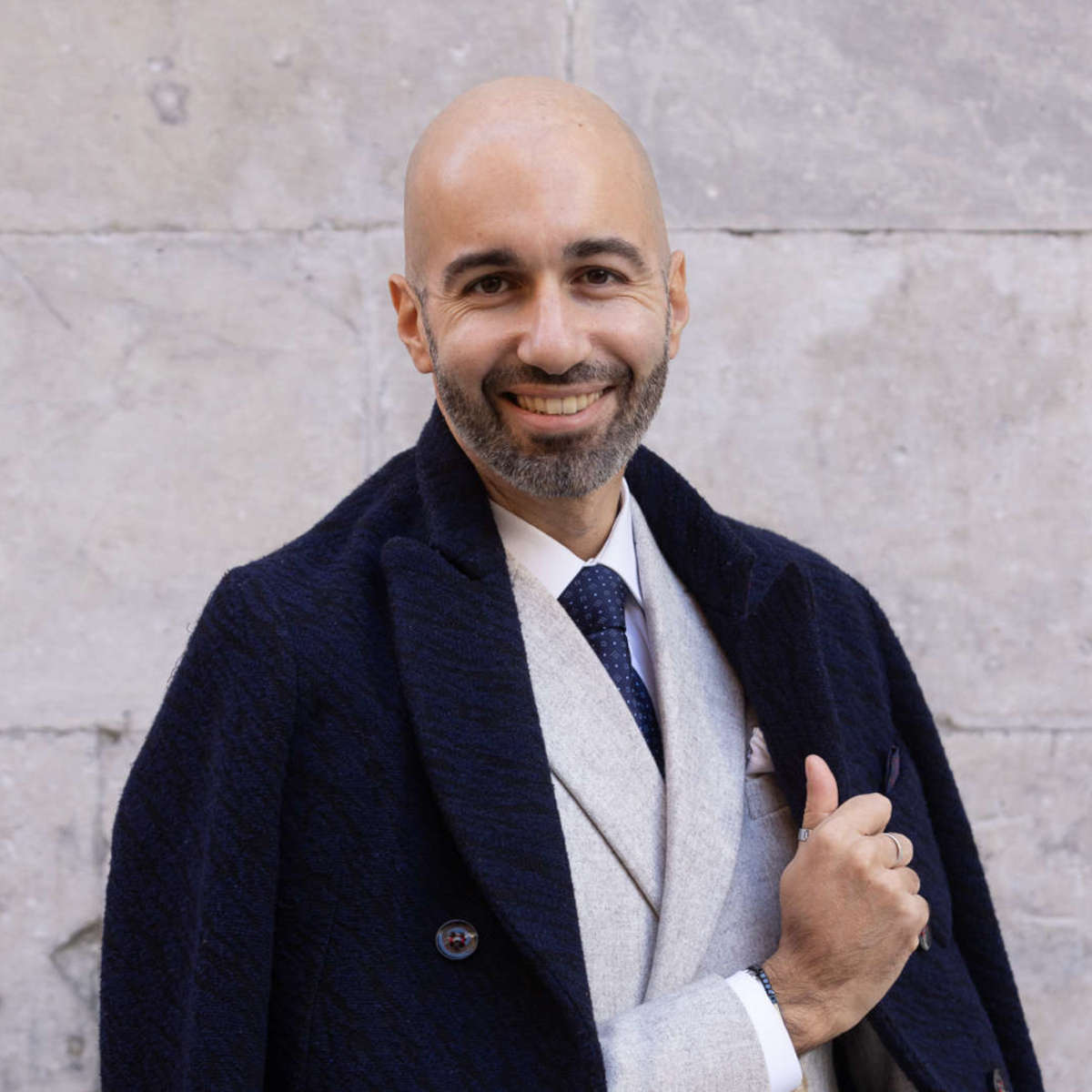Still, after a normal union assembly of the workers of the Special Superintendence for the Colosseum (SSCol) in Rome, legitimately and regularly communicated a week ago, we have to witness the screeches of our politicians, who just don’t like the idea that the workers can claim rights on a par with the tourists who remained outside the gates of Rome’s main archaeological sites for three hours (since the assembly took place from 8:30 to 11:30 this morning).
What are the reasons that led the workers to call the assembly? We read it in a note issued yesterday by the SSCol’s Unitary Trade Union Representatives: “We feel it is necessary to denounce: the non-payment of shift allowances and benefits for the extraordinary openings of the cultural venues (May Day, evening openings, etc.), after almost a calendar year of useless waiting. These are activities that have already been carried out by the workers, activities that have given our Minister, in the last 11 months, the opportunity to claim the successes of the initiatives in all the press organs; the failure to open a Sector negotiation for the renewal of the public workers’ contract that has been blocked for the economic part for many years despite the recent Constitutional Court ruling that declared the wage freeze unconstitutional; the all-political decision to set up, in agreement with the City of Rome and without the slightest confrontation with the social partners, a bureaucratic superstructure such as the Consortium for the management of the Central Area where instead a policy of shared objectives and serious and far-sighted hiring planning would be necessary; the failure to open a discussion on the organization of work within the Superintendency capable of re-establishing an organizational welfare that can retrain the work, raise the quality of services offered while not neglecting the safety of the staff who work there and the visitors who flock to our sites.”
 |
| Photo by Fanpage.it distributed under a Creative Commons license |
Minister Dario Franceschini’s reaction, entrusted to a Facebook post, was not long in coming: “the measure is full: today in the Council of Ministers proposed Museums as essential public services.” The phrase “the measure is full,” dear minister, would make much more sense if pronounced by its workers, who are continually mortified: from the superintendence directors, clubbed by that humiliating expression,"a quantum leap for Italian museums," referring to the twenty new directors of the main state museums, to the employees who guarantee the extraordinary openings of museums without receiving for almost a year the allowances that workers are entitled to by right. And, as the unions have rightly pointed out, if the minister can boast at every turn about the success of overtime openings, this is mostly due to those workers who keep archaeological sites and museums open while seeing overtime payments arrive months and months late. The measure is full because we have a public administration that pays late and, not content with this, mortifies its workers with shameful media campaigns guilty, moreover, of leading people to think that only in Italy are museums closed for union assemblies or strikes: a resounding absurdity belied by the news coming from abroad, for example from England, where since the beginning of the year there have been dozens of days of strikes against the privatization of the National Gallery in London. Strikes of which, of course, very few in Italy have spoken, and of which therefore very few are aware.
A minister who is deaf to the demands of his workers, who does not comment on the reasons for the protest, but merely issues notes in which he announces measures to limit the rights of his workers, is a minister who should at least ask himself whether he is performing his duty in an egregious manner, or whether he should rather leave his seat to a figure capable of giving serious and convincing answers to workers who have been complaining for months about the non-payment of overtime, the non-renewal of contracts blocked in the economic part even though the Constitutional Court has ruled against the wage freeze, and decisions imposed from above without the ministry engaging in a confrontation with the grassroots. We reiterate that workers have no less rights than the tourists in the queue (who, by the way, had to wait only three hours to see the reopened archaeological sites).
The measure is full for us, who have a minister who demonstrates, day after day, an increasingly constant lack of dialogue with the employees of his own ministry. Who humiliates former directors of major state museums by talking about “leapfrogging” in reference to new directors. The measure is full for us, who have to witness the disconnect between museums and the territory because of a MiBACT reform that has depowered, often merging them together and deleting them, many superintendencies. The measure is full for us, who must see those same superintendencies, already tried by the reform, lose even more importance and come out severely wounded by a public administration law against whose measures even the Higher Council of Cultural Heritage has risen. The measure is full for us, who with sadness have to learn that at the Uffizi the figure of the archaeologist who takes care of ancient collections is disappearing, but at the same time we are forced to hear that the Gallery might open up to great chefs. The measure is full for us, because the ministry, to our young people, is unable to offer better than precarious work with few internships, moreover poorly paid. A situation that has become increasingly unworthy and untenable. But our minister moves and thunders only when the Coliseum closes for three hours of union assembly. To say that we feel mocked by this policy probably does not give a good idea of how we feel.

The author of this article: Federico Giannini
Nato a Massa nel 1986, si è laureato nel 2010 in Informatica Umanistica all’Università di Pisa. Nel 2009 ha iniziato a lavorare nel settore della comunicazione su web, con particolare riferimento alla comunicazione per i beni culturali. Nel 2017 ha fondato con Ilaria Baratta la rivista Finestre sull’Arte. Dalla fondazione è direttore responsabile della rivista. Nel 2025 ha scritto il libro Vero, Falso, Fake. Credenze, errori e falsità nel mondo dell'arte (Giunti editore). Collabora e ha collaborato con diverse riviste, tra cui Art e Dossier e Left, e per la televisione è stato autore del documentario Le mani dell’arte (Rai 5) ed è stato tra i presentatori del programma Dorian – L’arte non invecchia (Rai 5). Al suo attivo anche docenze in materia di giornalismo culturale all'Università di Genova e all'Ordine dei Giornalisti, inoltre partecipa regolarmente come relatore e moderatore su temi di arte e cultura a numerosi convegni (tra gli altri: Lu.Bec. Lucca Beni Culturali, Ro.Me Exhibition, Con-Vivere Festival, TTG Travel Experience).
Warning: the translation into English of the original Italian article was created using automatic tools. We undertake to review all articles, but we do not guarantee the total absence of inaccuracies in the translation due to the program. You can find the original by clicking on the ITA button. If you find any mistake,please contact us.